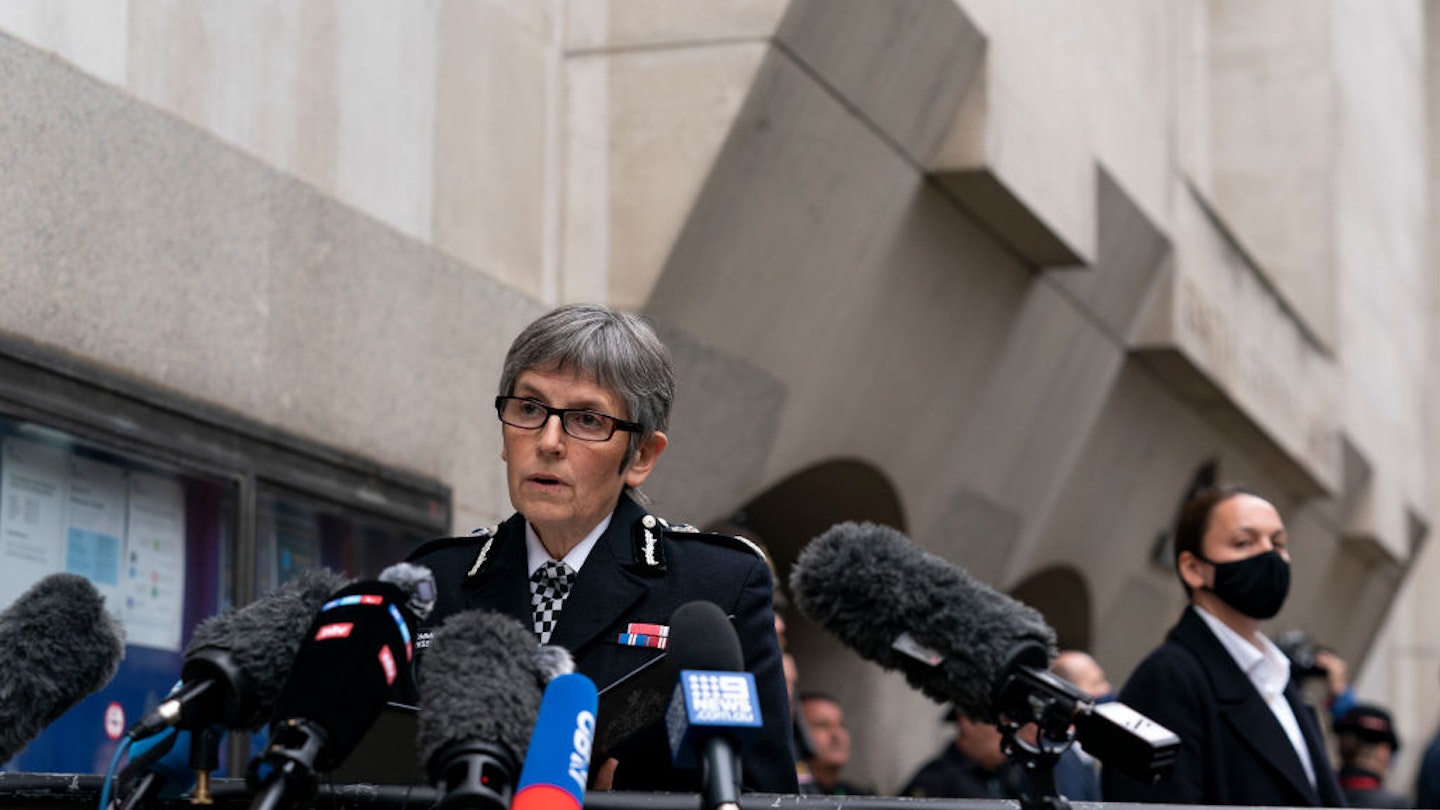It’s hard to remember a news story in recent memory quite so chilling as that of a serving police officer snatching a young woman off the streets of London under the guise of Covid laws, before raping and murdering her.
In the days, weeks and months after Wayne Couzens abducted Sarah Everard, a massive outpouring of grief by women all over the country over their lack of safety has underlined that the rupture of trust in the police force as a whole will take some work to repair. The surfacing of details over past wrongdoings by Couzens in particular has also rightly amplified calls for police reform, better vetting of officers and more stringent monitoring (and punishment) of police officers.
Beyond that, it has highlighted an issue that minority groups living in the UK have known to be true for a long time; that just because someone stands in uniform telling you that they have authority, doesn’t mean that their intentions are good or honourable.
The breach of trust between women and the police force since this brutal and senseless attack contributed in part to the tough sentencing brought upon Couzens when he was dealt a whole-life sentence. During the sentencing, Lord Justice Fulford said that the PC’s actions had 'eroded the confidence that the public are entitled to have in the police forces of England and Wales', which is of course true - but only addresses part of the problem.
Because it wasn’t just Couzens’ actions that led to a loss of trust, but the actions of the Met and, in particular, its chief Cressida Dick following the attack.
It wasn’t just Couzens’ actions that led to a loss of trust, but the actions of the Met and in particular, its chief Cressida Dick following the attack.
Since multiple claims of indecent exposure by Couzens have been made public - raising serious questions about police vetting procedures - he cannot be dismissed as one 'bad apple' as some have attempted.
A allegedly misogynistic WhatApp group that Couzens belonged to alongside other officers again suggests that early indications of extremely problematic behaviour fell through the safety net.
And you don’t have to look far for examples of other problematic behaviour in the police, particularly around the sharing of sensitive material among colleagues: just think of Bibaa Henry and Nicole Smallman, two sisters who were murdered and by whose bodies the police officers on duty decided to take selfies.
What is beyond clear is that the Met has a lot of work to do to even begin to address the loss of trust brought on by Couzens’s crimes, something which Dick often seemingly pays lip service to in her speeches. But recent efforts to do just that are falling far short of what is needed. Why? Because they fail to address the root of the problem by forgetting to address the fact that Couzens was a serving police officer in the first place.
Yesterday, the Met’s official Twitter account posted a video intended to demonstrate commitment to restoring faith in the force. 'Any lone, plain clothed police officer who engages with a woman on her own will now verify their identity through a new process,' the post says. 'We know we need to regain women’s trust. We fully accept the onus is on us to verify we are who we say we are & that we are acting appropriately.'
And while you might see this post and think, 'Oh that’s good they’re taking responsibility,' a closer look shows that these steps will do little to prevent what happened to Sarah Everard from happening again. Couzens WAS a legitimate police officer and so feasibly could have done any and all of these checks in front of Sarah. The truth is that this 'safety check' would only prevent people from masquerading as police officers to commit crimes — because a legitimate PC could prove their identity anyway.
As comedian and writer, James Fenton, succinctly put it below the Met's post: 'For people who are meant to investigate crime you’re sure failing to grasp that Wayne Couzens was a police officer several weeks after his actual conviction.' Another Twitter user said: 'Literally all [the Met’s] response to this has been versions of "here's how you can tell when you're dealing with a Real Cop" which makes absolutely no sense as a response unless you ARE implying that he wasn't one.'
The truth is that the only way to rebuild trust when it has been breached is to approach the issue with radical honesty, self-awareness and a conciliatory approach that should involve admitting personal or professional responsibility. It is not enough to simply say the onus is on you, you must also listen clearly to any objections being thrown your way and offer suggestions for how to address them.
At the moment, the Met’s stance seems to suggest that they are trying to lump Couzens in with imposters, rather than holding their hands up and saying: 'Yes, we really messed up, here’s how we are going to stop it happening again.' In this case that might look like the introduction of better vetting of officers, closer monitoring and taking complaints seriously as and when they arise.
At the moment, their response feels frustrating; like a half-apology. Unless the Met is able to be straight up with people, their ability to rebuild trust with the general public is in peril. Until that happens, their inability to do so risks further eroding this already fragile relationship and forcing women to continue in an environment in which they feel unsafe.
